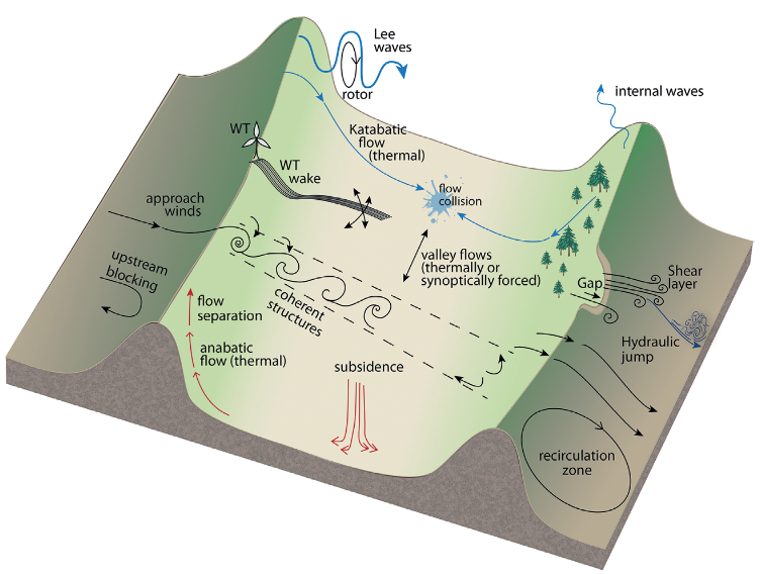Use Case 2: Perdigão testing site, Portugal
Perdigão is an inland testing site, located 200 kms to the North-West of Lisboa. It has a moderately complex topography, comprising two parallel ridges; the main wind directions (South-West and North-East) are perpendicular to the ridges. As a result, the site is close to an idealized 2D valley configuration. The wind direction means that the wake from one ridge is expected to modify the mean and turbulent flow over the leeward ridge. The site also presents some topographic inhomogeneities that allows for the investigation of 3D effects, secondary flows and flow convergence/divergence zones.
Due to these ideal characteristics, Perdigão has been chosen to perform a field measurement campaign in 2017, in the frame of the NEWA project (New European Wind Atlas). The main purpose of this test campaign was to improve understanding of microscale flows over complex terrain, and in turn develop better numerical models to simulate such flows. Two sets of measurements were performed:
- an intensive observational period of 45 days (01.05.2017 to 15.06.2017), relying on an unprecedented network of instrumentations (including 49 meteorological masts, 18 scanning lidars, 8 profiling lidars, and the Collaborative Lower Atmospheric Profiling System);
- a longer period of extensive observation (15.12.2016 to 30.04.2017)
Within the work package 3 of the HPCWE project, the Perdigão site has been chosen as one of three “use cases”. Its topography is representative of potential onshore sites in Brazil, and presents a suitable challenge for microscale simulation software. Project partners DTU, EDF and Vortex have defined a benchmark based on the available Perdigão dataset, to assess the performances of microscale and high-definition mesoscale codes.
References
H.J.S. Fernando et al., 2018. “The Perdigão: Peering into Microscale Details of Mountain Winds”, Bulletin of the American Meteorological Society 100(5), pp. 799-819.
Perdigão Field Experiment, Experiment design overview: available on the project website, https://www.eol.ucar.edu/field_projects/perdigão.


